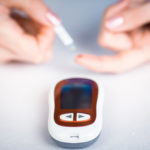In the peer-reviewed journal Alcoholism: Clinical and Experimental Research, researchers at the University of Bristol provided new insight into how prenatal alcohol exposure potentially increases the risk of depression in children once they reach late-adolescence.
The study probed over 14,000 pregnant women, a small portion of which consumed alcohol between 18 and 32 weeks of their pregnancy. Researchers collected the data from the Avon Longitudinal Study of Parents and Children (ALSPAC).
“We also examined partner drinking as a negative control for intrauterine exposure for comparison,” the co-authors noted in the findings.
The study showed that children whose mothers consumed alcohol at 18 weeks during their pregnancy were at a substantially increased risk, up to 17%, of depression at late-adolescence, compared to the healthy control group.
The findings determined that practically no correlation exists between partner drinking and offspring depression in adolescence.
“Offspring of mothers that consumed any alcohol at 18 weeks gestation were at increased risk of having a diagnosis of depression, but there was no clear evidence of association between partners’ alcohol consumption at 18 weeks gestation during pregnancy and increased risk of offspring depression,” according to the study.
“Our study highlights the potentially long‐lasting detrimental effects of maternal alcohol consumption in pregnancy on offspring mental health. Although the associations we observed are small, they may nevertheless be important at a population level.”


